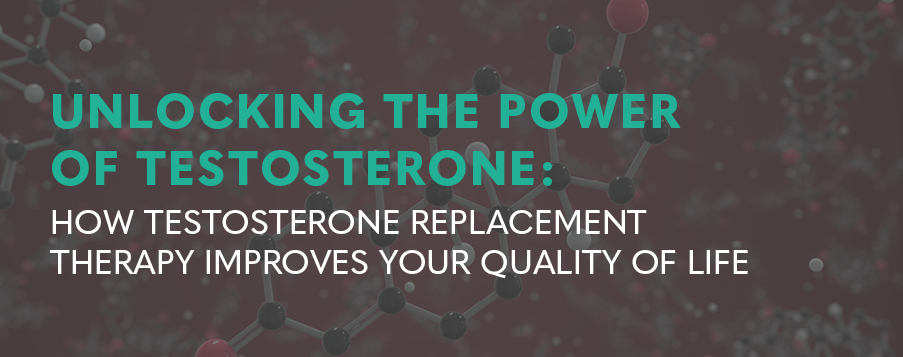05/12/2024
When it comes to understanding your health, hormones play a critical role. Testosterone, a vital hormone in the human body, significantly impacts our energy levels, muscle mass, bone density, mood, and libido. If you’re experiencing unexplained fatigue, mood swings, or reduced physical performance, it may be time to explore testosterone testing and if required testosterone replacement therapy.
This guide will walk you through the importance of testosterone, the symptoms of low testosterone, and how TRT (testosterone replacement therapy) could help you regain balance and vitality.
What is testosterone and why is it important?
Testosterone is a sex hormone primarily associated with male development, though it is also present in smaller amounts in women. It contributes to:
- Muscle Growth and Strength: Helps maintain muscle mass and strength
- Bone Health: Supports bone density
- Energy and Mood: Plays a role in energy levels and emotional well-being
- Sexual Health: Drives libido and contributes to reproductive health
As we age, testosterone levels naturally decline. However, certain factors can accelerate this decline, leading to a condition known as low testosterone, or hypogonadism.
Symptoms of low testosterone
If your testosterone levels dip below the normal range, you may begin to notice some of the following symptoms of low testosterone:
- Decreased libido
- Erectile dysfunction
- Fatigue and lack of energy
- Depression or irritability
- Loss of muscle mass
- Increased body fat
- Reduced bone density
- Hair loss
These symptoms can severely impact your quality of life, but they’re not always conclusive. That’s why testosterone testing is so important for accurate diagnosis.
What is testosterone testing?
A Testosterone test will measures the levels of testosterone in your blood. It’s typically done through a simple blood test and can identify whether or not you have low testosterone levels.
You should consider a testosterone test if you are experience any of the symptoms of low testosterone mentioned above or you have one or more risk factors;
- Aging
- Obesity
- Medical conditions like diabetes, liver, or kidney disease
- Certain medications, such as opioids or steroids
Ideally testosterone tests should be taken in the morning when testosterone levels are at their highest.
What is TRT (Testosterone Replacement Therapy)?
TRT involves supplementing testosterone in individuals with deficient levels and aims to restore testosterone levels to the normal range, alleviating symptoms of low testosterone and improving your overall well-being.
Benefits of TRT
TRT offers numerous health benefits for men suffering from low testosterone symptoms:
- Physical health benefits – TRT can help increase muscle mass and strength, reduce body fat, enhance bone density and improve physical performance.
- Mental health improvements – TRT can help alleviate mood swings, irritability and depression promoting a more stable and positive mental state.
- Sexual health – TRT can enhance libido, improve erectile function and increase energy levels
Risks Associated with TRT (Testosterone Replacement Therapy)
While TRT can offer life-changing benefits, it’s not for everyone and can come with potential risks and side effects. Understanding these risks can help you decide if testosterone replacement therapy is right for you.
Short term side effects can include acne, fluid retention and changes in mood or behaviour. These side effects are usually mild and tend to subside as you adjust to treatment.
Some studies suggest a possible link between TRT and increased risk of cardiovascular disease. Individuals with certain health conditions should therefore exercise caution when considering TRT. If you have prostate cancer, breast cancer, sleep apnoea or severe urinary symptoms we recommend you speak with your Doctor.
Lifestyle changes to boost testosterone levels naturally
Before taking TRT or alongside TRT, consider these lifestyle changes to help optimise your testosterone levels naturally:
- Exercise Regularly: Focus on strength training and high-intensity interval training (HIIT).
- Eat a Balanced Diet: Include healthy fats, lean proteins, and plenty of vegetables
- Manage Stress: High stress increases cortisol, which can lower testosterone
- Get Adequate Sleep: Aim for 7-9 hours per night to support hormonal balance
- Maintain a Healthy Weight: Obesity is linked to lower testosterone levels
Low testosterone levels can impact your physical and emotional well-being, but it’s manageable with the right approach. Testosterone testing is the first step toward understanding your levels and addressing any imbalance. If needed, testosterone replacement therapy (TRT) can help restore your vitality and improve your quality of life.
Ready to take the next step?
Schedule your testosterone test today and take control of your health. With the right treatment plan, you can get back to feeling your best.
Male Hormone Test
Find out if you have a hormone imbalance that could be effecting your mood, energy levels, libido, or sports performance with our Male Hormone Test. We test for 8 key markers including testosterone to give you a comprehensive overview of your hormonal health.
Manual Testosterone Replacement Therapy
Testosterone Replacement Therapy is used to treat low testosterone symptoms. It works by supplementing the hormone, helping restore optimal body function and overall well-being.



